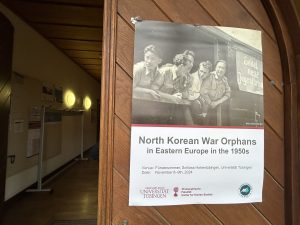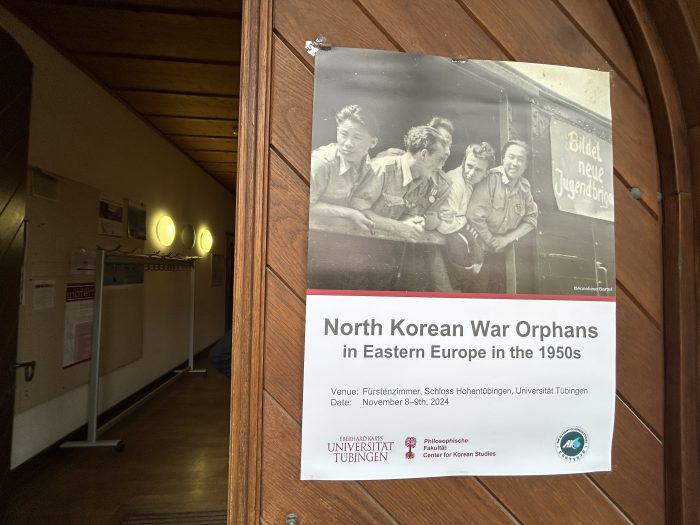
We are pleased to announce our participation at the “North Korean War Orphans in Eastern Europe in the 1950s“ conference at the University of Tübingen on the 8th and 9th of November 2024. We have discussed the topic of North Korean orphans in Bulgaria, Germany, Hungary, Poland, Romania, and Czechoslovakia.

The situation was diverse throughout the studied areas and countries. All countries adopted orphans at the beginning of the 1950s and then cared for them until their inevitable return to the Democratic Republic of North Korea. They usually had a couple of dedicated orphanages and schools, and the government of respected countries funded their needs. They typically had better living conditions than their native classmates.
Bulgaria adopted 700 North Korean orphans from 1952 through 1953. The orphans lived in facilities in Dolna Banya, Parvomay, and Bankya, where they even had established “Kim Ilsŏng’s dormitory”.
The German Democratic Republic first adopted 200 orphans who lived in Moritzburg near Dresden and then adopted an additional 400 children who stayed in Berlin. East Germany was specific with their widespread vocational education which was attended by the orphans there as well.
Hungary was, together with Poland, one of the first Eastern European countries which adopted North Korean orphans. The number reached 500 children and they lived in the so-called “Kim Ilsŏng’s House” in Budapest. In Poland, the numbers of orphans are hard to determine precisely but the estimation is around 1200 adopted North Korean children. They stayed in the Plakowice orphanage, which, according to the sources, provided a comfortable lifestyle to them.
Romania accepted 1500 orphans in 1952 and they stayed at various locations – Târgoviste, Tusnad, or Siret.
Czechoslovakia adopted 200 orphans in 1952 and 700 in 1953. They studied Czech or Slovak very diligently, over 16 hours per week, and they attended school. Korean children in Czechoslovakia lived at multiple locations – Bystřice near Benešov, Castle Lišna from which they were moved to a house in Houšťka near Stará Boleslav. They also lived in Chocerady, Liběšice near Litoměřice, Valeč nad Podbořany, Budkov near Moravské Budějovice and Jindřichov near Krnov. Additionally, they also stayed at Mošovce in Slovakia.
Since the research is still ongoing, any sort of information would be of incredible value to the cause. In case you have any information about North Korean orphans studying in Eastern Europe during the 20th century, please, contact us at ColdwarKorea@ff.cuni.cz.
